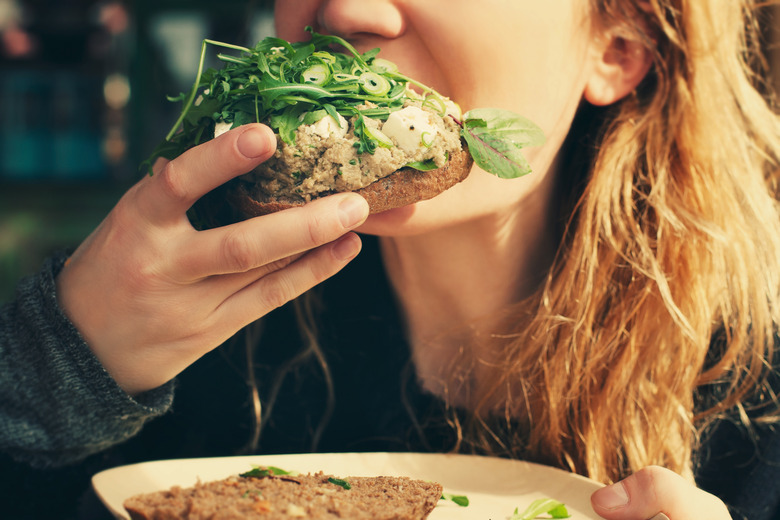What Happens When Pepsin Mixes With Food In The Stomach?
The purpose of the human digestive system is to break down larger food molecules into smaller molecules that the cells of the body can use. Carbohydrates, fats and proteins are broken down by specific digestive enzymes and in specific locations of the digestive system. Pepsin is located in the stomach and plays a major role in the breakdown of proteins. The digestion of proteins by pepsin is not complete and digestive enzymes in the small intestine finish the job of breaking down food proteins.
The Stomach Plays a Major Role in Digestion
The Stomach Plays a Major Role in Digestion
The stomach is a sack-like organ located in the left upper abdomen. It is able to hold up to 2 liters (about 1/2 gallon) of food and liquid. When food enters the stomach, the strong muscles of the stomach's walls churn the food, mixing it with gastric juice to produce "chyme." Gastric juice contains mucus, hydrochloric acid and the hormone gastrin, and stimulates the secretion of pepsinogen, the precursor enzyme of pepsin.
Pepsin is Generated from Pepsinogen
Pepsin is Generated from Pepsinogen
Tasting, smelling, seeing or just thinking about food can cause gastric glands in the stomach to secrete gastric juice. The hydrochloric acid in the gastric juice converts pepsinogen into pepsin by cleaving off a stretch of amino acids called a peptide. This reaction requires very acidic pH, ranging between 1 to 3. The acidic environment is needed for the generation and activity of pepsin. The hydrochloric acid in the stomach generally provides a pH of about 1.5 to 3.5.
Pepsin Breaks Down Food Proteins
Pepsin Breaks Down Food Proteins
The acid in the stomach causes food proteins to unfold in a process called denaturation. Denaturation exposes the protein's molecular bonds so that pepsin can access them and break the proteins into smaller fragments, called peptides or polypeptides. The small intestine will continue to break down proteins by chopping the peptides into amino acids, which can readily be absorbed into the blood stream. Pepsin digests proteins for several hours before the partially digested food mix is slowly transferred to the small intestine.
Pepsin Plays a Role in Ulcers
Pepsin Plays a Role in Ulcers
Mucus in the stomach protects the lining of the stomach from the potential damage by hydrochloric acid and pepsin. Stomach ulcers are painful sores that can occur when the stomach lining is damaged. A bacteria called Helicobacter pylori is able to live in an acid environment and is thought to prevent the secretion of protective mucus, allowing pepsin to make holes in in the stomach walls. Antacids work by raising the pH in the stomach and inactivating pepsin, as pepsin works only at low pH. Long-term use of antacids is not advisable because the inhibition of pepsin prevents adequate digestion of proteins. Absorption of incompletely digested protein fragments may cause allergies and other health problems.
Cite This Article
MLA
Blue, Marie-Luise. "What Happens When Pepsin Mixes With Food In The Stomach?" sciencing.com, https://www.sciencing.com/happens-pepsin-mixes-food-stomach-8206/. 13 March 2018.
APA
Blue, Marie-Luise. (2018, March 13). What Happens When Pepsin Mixes With Food In The Stomach?. sciencing.com. Retrieved from https://www.sciencing.com/happens-pepsin-mixes-food-stomach-8206/
Chicago
Blue, Marie-Luise. What Happens When Pepsin Mixes With Food In The Stomach? last modified March 24, 2022. https://www.sciencing.com/happens-pepsin-mixes-food-stomach-8206/
